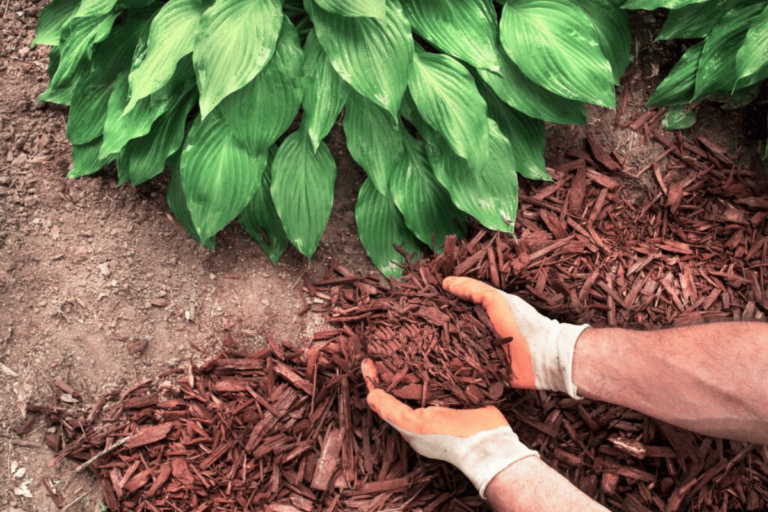Advantages of Mulch
Mulching is a vital gardening practice that involves protecting the soil
surface with organic or inorganic materials. Mulching has several benefits,
including significantly enhancing the health and appearance of your garden.
Moisture Retention
One of the main gains of using mulch is water retention. It keeps moisture
in the root zone by reducing soil water evaporation, hence avoiding frequent
watering, which is helpful during drought.
Example: When a layer of mulch surrounds plants, it reduces watering needs
by about half.
Weed Suppression
Mulch plays a vital role in controlling weeds. By putting a cover on top,
weed seeds will not grow while competition for water and nutrients is reduced, making
plants healthier and more robust.
Example: You can block sunlight from reaching weed seeds by applying a thick
mulch so they will never germinate.
Nutrient Enrichment
Organic types decompose as wood chips, straw and leaves over time, adding
valuable nutrients to the soil and improving soil structure.
Example: Decomposing mulches release plant food gradually, keeping soils
fertile throughout.
Temperature Regulation
This layer helps keep temperatures low in summer and high during Winter by
acting as insulating material against loss or gain of heat. It prevents extreme
temperatures around plant roots, thereby promoting healthy growth.
Example: During summer, mulch can help reduce soil temperature by several
degrees, thus protecting roots from heat stress.
Soil Erosion Prevention
It also reduces the impact of heavy rain and wind on topsoil, preventing
soil erosion.
Example: A cultural mulch absorbs much energy from rainwater, causing little
or no displacement of soil particles downslope after it has rained heavily than
an uncultured one does, leading to washing away all eroded matter downstream,
most notably when slopes are steep or ground roughness is slight enough to make
velocities high.
Best Mulch Types for Your Garden
Your garden’s choice of mulch type depends on what you need and like. Here
are some popular choices:
Organic Mulches
Wood Chips and Bark
Benefits: Long-lasting, excellent weed control.
Use: Around trees, shrubs, and flower beds.
Straw and Hay
Benefits: Light-weighted, easy-to-spread.
Use Vegetable gardens and annual flower beds.
Compost
Benefits: Full of nutrients; enhances soil fertility as well as structure.
Use: It can be mixed with the soil or used as a top layer.
Leaves
Benefits: Natural, little cost involved in its collection and usage.
Use: Collect leaves from deciduous shade trees to shred them up for mulching
garden beds.
Inorganic Mulches
Gravel and Pebbles
Benefits: Durable, good drainage characteristics – suitable for roadsides
where there are no water logging possibilities (on rock formations)
Use: Rock gardens, pathways, xeriscapes
Landscape Fabric
Benefits: It prevents weed growth, allowing water penetration while air can
move quickly.
Use: Typically found under decorative mulch or where long-term weed
suppression is desired.
Application Tips
Apply 2-4 inches of mulch around plants, leaving a narrow gap around the
base of trees and shrubs to avoid excessive moisture buildup, which may lead to
rotting. Periodically replenish it when it has decreased to maintain its look and
effectiveness.
Example: Do not place mulch against tree trunks because this causes diseases
or insect damage.
Conclusion
By selecting the right mulch and applying it correctly, you can benefit from
this critical gardening practice. It saves soil moisture, controls weeds by
blocking sunlight from reaching seeds, adds nutrients to soils through
decomposition, among other processes occurring beneath natural types such as
wood chips, straw and leaves, and keeps soil temperature within the range that
best suits plants during different seasons like Winter and reduces erosion by
minimizing the impact of raindrops on the ground.
Explore More Gardening Tips and Ideas
Source: Mulching Garden Practice


